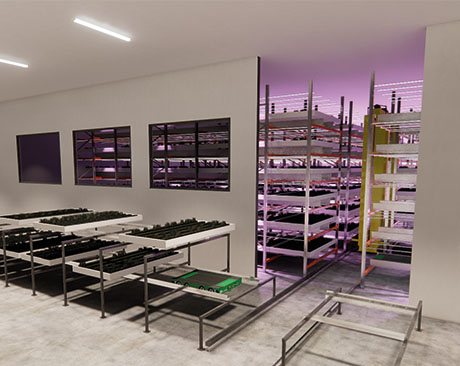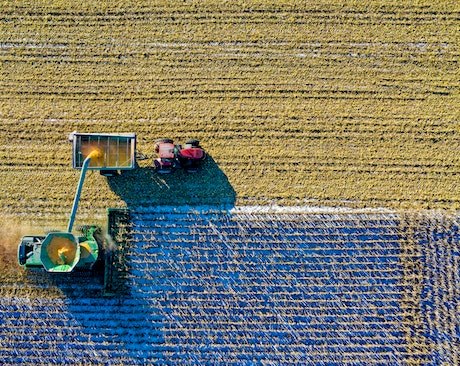What is a WMS System?
A WMS helps your team be more efficient, by making it easier to know where incoming items should be stored, and where to find stock that's due to leave.
Read More
06.01.2025
The UK’s recent salad shortages have highlighted the challenges facing farmers and retailers in producing and distributing fresh produce. To address this issue, Vertical Farms are emerging as a potential solution. As SEC Storage and Cambridge HOK – companies specialising in warehouse and farming automation – are currently working on the world’s largest industrial-scale, fully-automated Vertical Farm, we will explore how this technology could prevent future salad shortages in the UK.
Vertical farming is gaining popularity due to its ability to produce fresh produce in a controlled environment more consistently and reliably than traditional farming methods. LED lighting provides the necessary light for plant growth, and the controlled environment allows for year-round production, regardless of weather conditions. A Vertical Farm’s potential benefits include a more consistent and reliable supply of fresh produce, reduced environmental impact, and minimised food waste.

Our industrial-scale, fully-automated Vertical Farm takes these benefits to the next level. By automating the entire process, from planting to harvesting, we can provide an even more reliable and efficient supply of fresh produce at a competitive price. Robotics and artificial intelligence optimise plant growth and harvest crops at the peak of their freshness, reducing the reliance on manual labour and increasing efficiency.
In addition to its reliability and efficiency, our Vertical Farm will address some key challenges facing the UK’s food industry. By producing fresh produce locally, the Farm can reduce the environmental impact of long-distance transportation and promote local food systems. Precise temperature and humidity control maximises the plants’ health and resilience, producing the amount needed with virtually no loss to disease or bad weather.
Of course, implementing an industrial-scale, fully-automated Vertical Farm has its challenges, such as the initial investment in infrastructure and technology and the need for a significant, reliable renewable energy source. However, the potential benefits of such a farm make it a promising solution for increasing food security and the resilience of food supply chains in the UK and beyond.

As an emerging technology, Vertical Farms like ours have the potential to revolutionise the UK’s food industry by providing a reliable, efficient, and sustainable source of fresh produce. By preventing future salad shortages and promoting local food systems, this type of Farm will significantly impact the environment, economy, and health of communities. With the world’s largest industrial-scale, fully-automated Vertical Farm being built in South London, we are excited about the future of vertical farming and its vital role in overcoming the challenges facing the UK’s food industry.

A WMS helps your team be more efficient, by making it easier to know where incoming items should be stored, and where to find stock that's due to leave.
Read MoreThis is our take on the benefits of AI in warehousing in the next few years.
Read MoreMaking a workspace sustainable is all about finding ways to reduce our reliance on resources, without compromising the efficiency and effectiveness of our businesses.
Read More